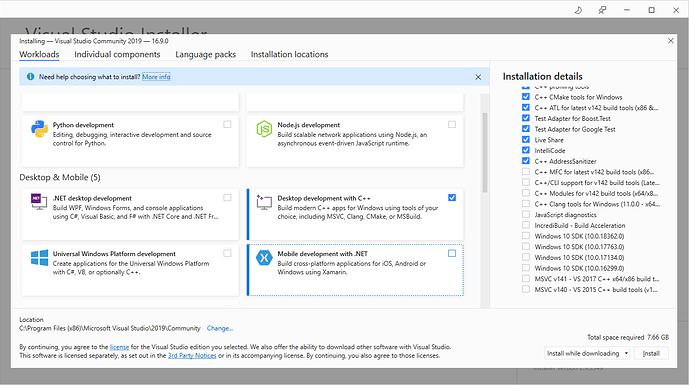Tried Haxe, HaxeDevelop, OpenFl, Lime, today. Can’t get anything to work. Does anyone have a link to a “Getting Started” post that actually works today?
I have several years of FlashDevelop, captive runtime Air projector, development experience. I downloaded and installed Haxe (haxe-4.2.0-win64.exe), HaxeDevelop (HaxeDevelop-5.3.3.exe). HaxeDevelop sees that version of Haxe as 4.1, but I figure FlashDevelop had issues like that too. (Actually uninstalled and re-installed HaxeDevelop a few times)
I tried the steps at:
and
I create and try to test it and I get errors like:
lime._internal.backend.html5.HTML5WebGL2RenderContext should be lime.graphics.WebGLRenderContext
I tried at least one other OpenFl sample too.
When I open samples in HaxeDevelop–both Haxe exmples and OpenFl I get errors on everything I try.
I try command line
lime install openfl
openfl is up to date
lime is up to date
hxcpp is up to date
lime-samples is up to date
openfl-samples is up to date
actuate is up to date
box2d is up to date
layout is up to date
I’ve installed libraries with Haxelib as directed by error messages in HaxDevelop.
I’ve seen errors when trying to test to flash like: “openfl.Utils.ByteArray should be haxe.io.Bytes”
I try to test to neko, and get “lime.utils.Float32Array should be lime.utils.DataPointer”
I’ve seen errors like “@:fakeEnum enums is no longer supported in Haxe 4, use extern enum abstract instead”
I’ve tried multiple project types in HaxDevelop, but OpenFl is the reason for trying Haxe.
Can anyone point me to a link to getting started with OpenFl that has a simple step through, with proper versions of Haxe, Lime, and OpenFl, that actually works? I’d be happy to uninstall everything and start over, or switch to VSCode if that helps (which I guess is what I need to do anyway for decent debugging).
There must be such a thing, it seems like plenty of developers are using OpenFl with Haxelib. That would get me rolling much faster than what I’m trying now.
I’m not a guru, but I’m not a complete idiot either (at least I don’t think I am).
Thanks for reading.

